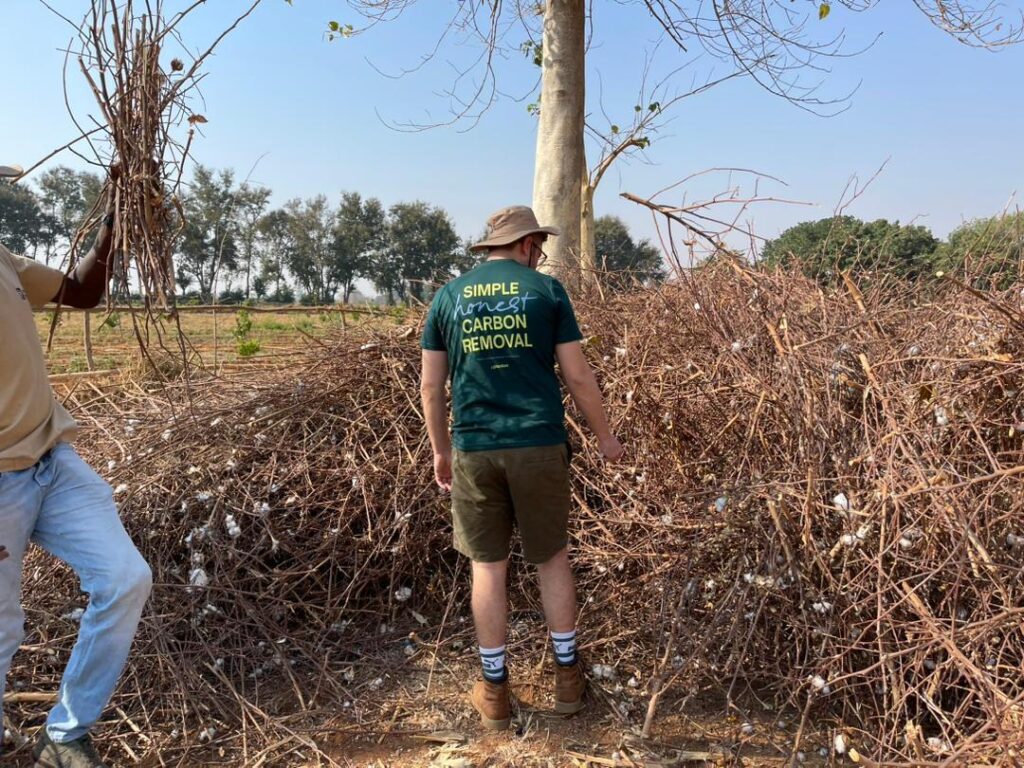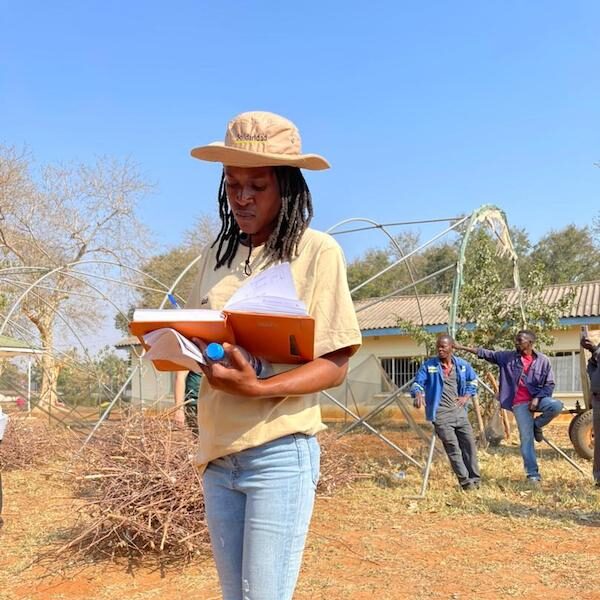A training participant in Zambia explores ways to use agricultural waste to create biochar.
Solidaridad Southern Africa, Kvuno, and Planboo are working together to bring biochar technology to Zambia. The collaboration equips smallholder farmers with skills to produce biochar—a soil amendment that enhances soil fertility, increases crop yields, and improves climate resilience.
Biochar has been used by farmers for thousands of years to improve their crop yields. It is the result of plant material being heated to high temperatures in the absence of oxygen. Unable to catch fire, the material is ‘pyrolyzed’ — it turns into a solid that has captured its carbon in a lightweight and porous material that resembles charcoal.
Converting agricultural waste into biochar reduces greenhouse gas emissions, and enriches soil through improved water retention, nutrient availability, and increased microbial activity.
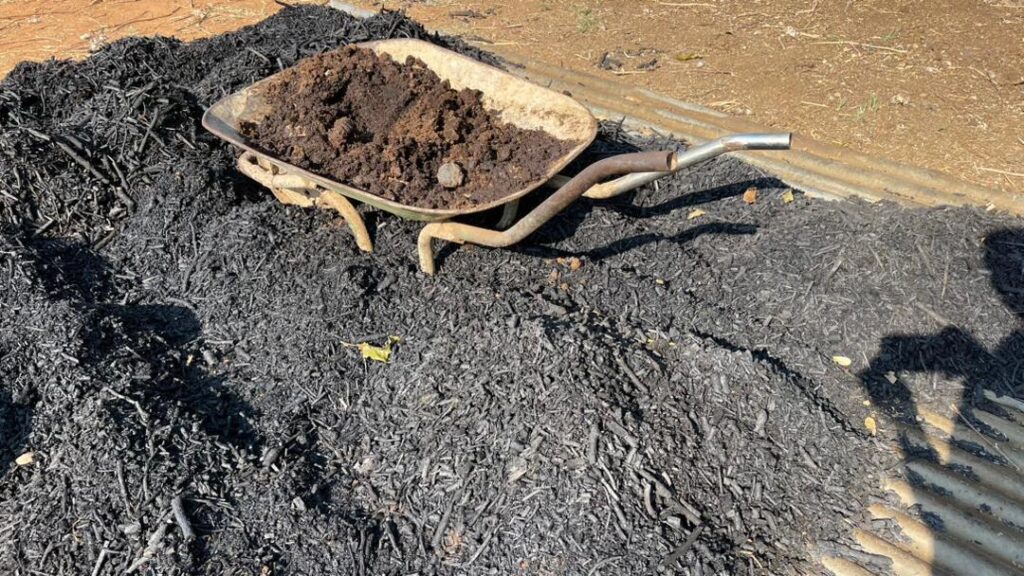
Solidaridad is already working in Ghana to encourage the use of biochar in cocoa agriculture, while in Zambia, biochar is being used to spark development in the country’s cotton sector. The Zambian biochar initiative is part of Solidaridad’s Pathways to Prosperity (P2P) programme, which integrates sustainable practices like intercropping, conservation farming, and water-use efficiency.
“Biochar represents an important step toward sustainable agriculture in Zambia, and we’re thrilled to partner with Planboo to empower farmers with this sustainable practice,” said Shungu Kanyemba, Managing Director of Solidaridad Southern Africa.
As an organization, Planboo focuses on sustainability and innovative biochar solutions to address both agricultural and climate challenges. Planboo’s expertise in biochar production ensures that biochar production technology is scalable and impactful.
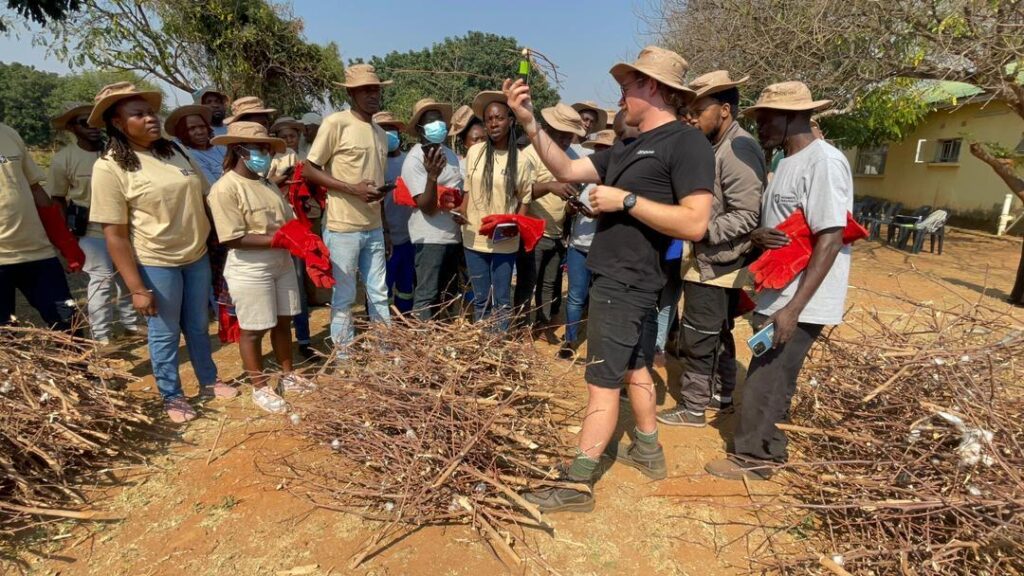
“Biochar is more than just a soil enhancer; it’s a tool for climate action,” noted Eilidh Dempsey, Supply Coordinator of Planboo. “By adopting biochar technology, Zambian farmers can increase their crop yields, remove thousands of tonnes of CO₂, and generate vital carbon finance in the region.”
The third partner in the biochar programme, Kvuno, connects farmers to sustainable technologies and provides training on climate-resilient practices that include biochar production. The organization is a social enterprise that is committed to supporting smallholder farmers through sustainable agricultural technologies, resources and market opportunities.
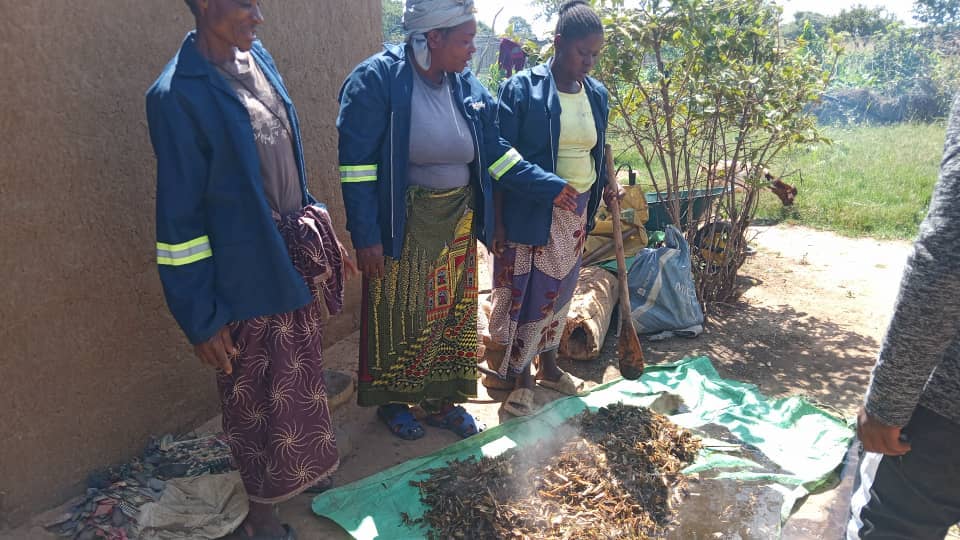
“Kvuno is committed to equipping farmers with tools that transform their livelihoods,” said Lydia Banda, Regional Operations Lead at Kvuno. “This partnership will enable farmers to improve soil health, increase yields, and benefit from carbon credits. It’s a win for both the environment and the community.”
Our shared goal is to create a lasting impact on agriculture and climate change, but time is of the essence. We must act now to implement sustainable solutions that will benefit communities and the environment alike.
Shungu Kanyemba, Managing Director of Solidaridad Southern Africa
The collaboration with Kvuno and Planboo to encourage the use of biochar in Zambia builds a strong foundation for future work to promote sustainable agriculture and combat climate change. Zambian farmers can significantly improve their livelihoods as they scale up biochar production, while integrating it with other climate-resilient farming techniques will make a significant contribution to a healthier planet.
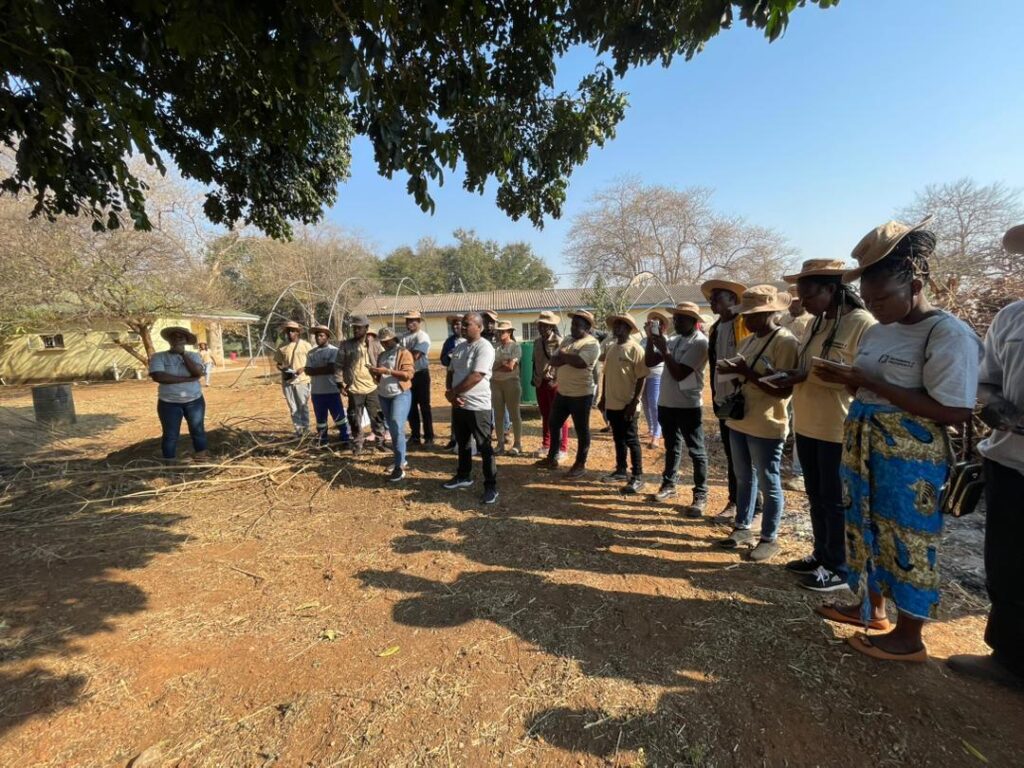
About Pathways to Prosperity
Pathways to Prosperity is a seven-year programme (2023-2029) made possible with the financial support from the Netherlands Ministry of Foreign Affairs. The initiative works to improve production practices, create better market access and support the provision of services.
Addressing systemic challenges through a variety of pathways, Solidaridad strives to remove key barriers to sustainable production and trade, while working towards fair and inclusive access to knowledge, skills, services, finance, and markets.
